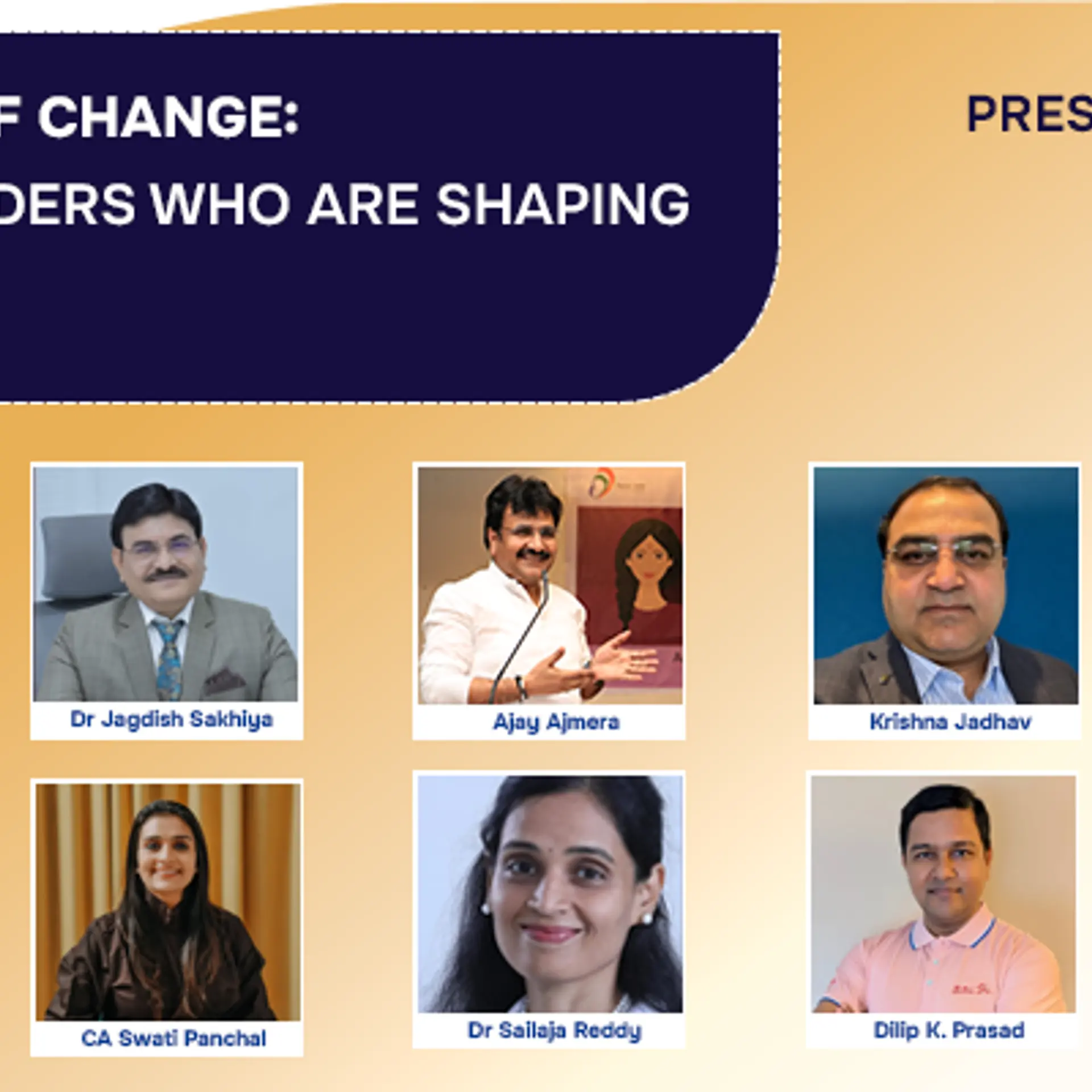Population scale change can only be unlocked via technology
In Conversation with Shradha Sharma, EkStep co-founders Nandan Nilekani, Rohini Nilekani, and Shankar Maruwada speak about unleashing the potential of India’s human capital.
Key Takeaways
- Nandan Nilekani believes that human capital is the key to India’s success and that upskilling is critical to its future growth.
- He believes that India’s transformation will be achieved by unlocking the skill potential of every citizen.
- Nandan Nilekani adds that combining human capital and data capital through technology will unlock new opportunities.
India’s journey from being a developing country to becoming the world's fifth-largest economy is nothing short of extraordinary. At every step, skilled manpower helped the country progress socially and economically. As one of the co-founders of Infosys and the chief architect of Aadhaar, Nandan Nilekani was one of them. He utilised his skills and entrepreneurial spirit to enable a technological revolution. Now, he is on a mission to empower every Indian to unlock their human capital.
“IT services is a $250 billion industry employing 5 million people. India is the largest receiver of inward remittances, ~$100 billion a year. India’s progress depends on human capital and hence there is a need to unlock the human capital of everyone,” says Nandan in Conversation with Shradha Sharma.
He adds that value unlocking of India’s human capital can be done through upskilling and reskilling by using technological tools.
In his post-Infosys and post-Aadhaar career, Nandan is the co-founder and chairperson, EkStep Foundation. A non-profit organisation, supports projects building digital public goods for the masses. Using technology to enhance human capital is of special interest to Nandan and his co-founders, Rohini Nilekani and Shankar Maruwada.
EkStep runs an initiative called People+AI to help build mass solutions for India using artificial intelligence. People+AI supports the Indian ecosystem to leverage the power of AI for building solutions at scale.
The efforts come at a time when AI has been playing a pivotal role in India’s digital economy. As per NASSCOM data, AI, as a sector, employs around 416,000 professionals, showing a 20%-25% growth. In addition, AI is expected to contribute $957 billion (~Rs 80 lakh crore) to India’s economy by 2035.
Data plus human capital
Digitisation took shape in India through the JAM trinity, namely Jan Dhan, Aadhaar, and Mobile. Aadhaar-enabled e-KYC and digital benefit transfer. The second phase of growth came through digital payment via UPI and ONDC. What is unique to India is the fact that people own their data.
“Historically, customers’ digital footprints are not with people themselves, they are with governments or companies. In India, the unique architecture of data empowerment ensures that the data is with people. And now they can use that data to improve their lives,” says Nandan.
Explaining this further, he cites the example of how individuals can use salary data to get a consumer loan. Similarly, small businesses can use sales and purchase data to get a business loan.
“If you combine human capital plus data capital, all kinds of things can happen. It can unlock new opportunities. And that's where the People+AI advantage comes from,” he adds.
People+AI has a range of initiatives, including an 18-month fellowship program, responsible AI to establish guardrails, and a manifesto to guide the development and adoption of AI in India.
Shankar equates People+AI to a powerful combined force of human capital and digital capital. “AI can be used to disrupt and leapfrog. We are excited by the power of an open network and India’s young population,” he adds.
EkStep and People+AI will use a collaborative approach to solve real-world problems using technology. This includes partnerships with the government, private sector, entrepreneurs, and civil society organisations. These initiatives are in harmony with the government’s AI vision, which involves leveraging transformative technologies to foster inclusion, innovation, and adoption for social impact.
Generative AI and beyond
The use cases of AI have expanded with the introduction of Generative AI (GenAI). It is a new AI model that will help create realistic text, images, and videos using a set of specific prompts.
“We have the world’s largest youth population and they need to learn advanced skills and not just the basics. AI is accelerating the pace of change,” says Nandan.
According to him, GenAI is a force multiplier and is opening up new vistas of thought. However, Nandan also reiterates the importance of building guardrails to safeguard against harms, such as hallucinations and bias.
The advantages, he says, are multifold. For instance, GenAI can be used to improve learning outcomes for people. GenAI can also be used to amplify the services of doctors or teachers. “GenAI can also be used to uncomplicate things. Eventually, it will expand economic opportunities for everyone,” adds Nandan.
Using technological tools such as AI and GenAI as the catalysts, he envisions the next 10 years to be crucial in upskilling and preparing for the future. However, he adds that the models have to work at scale to ensure that everyone is well-educated and upskilled. He foresees similar initiatives to amplify healthcare and improve access using technology.
“Content and job discovery should be ubiquitous, and credentials should be accessible. Then people’s ambitions and aspirations will take care of the rest,” says Nandan.
After successfully steering the Aadhaar project, Nandan and his team at EkStep are ready for another challenge. The human plus digital challenge. The government and India’s technology innovators will be its key collaborators in building an equitable growth model for the future.







